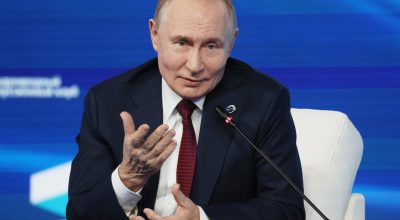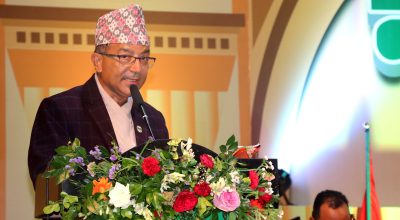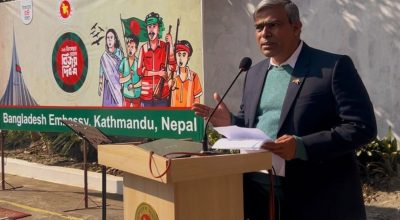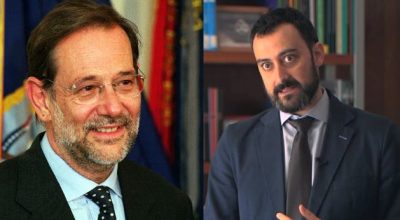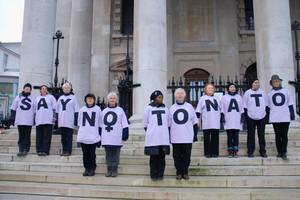
The North Atlantic Treaty Organization (NATO) summit, which was held on July 11 and 12, has created frustration and despair in the global sphere. The global community has expected a commitment to peace, harmony, and cooperation from the NATO summit, unfortunately, the issue of the discussion and the issued statement have signaled an increase in tension among the global powers.
NATO has emphasized power politics, zero-sum games, and a cold-war mentality, which are against global peace and sustainable cooperation. Again, NATO has been given singled to intervene and hurdle on the internal matters of other countries. Global experts have opined that NATO’s decision will damage the status and standing of the Western world.
NATO’s role in the world has been marred by actions that have worked against peace, unity, and solidarity. One significant example of this is NATO’s eastward expansion, particularly during the 1997 summit in Madrid when Hungary, Poland, and the Czech Republic were officially invited to join the alliance. The expansion into Eastern European countries that were once part of the Soviet sphere was seen as a hostile gesture by Russia, leading to growing animosity between Russia and the West. Critics within the US foreign policy establishment warned that such enlargement would be perceived as a threat by Russia and could fuel revanchist attitudes. This expansion has unintentionally acted as a self-fulfilling prophecy, fueling tensions and destabilizing relations in the region.
NATO’s involvement in conflicts beyond its member states has also raised concerns about its role in promoting peace. The alliance’s actions in bombing Yugoslavia in contravention of international law and the US-led invasion of Iraq in 2003 without UN authorization have strained diplomatic relations and diminished prospects for unity. Additionally, the enlargement of NATO in 2004 to include seven more Eastern European countries, including three Baltic states formerly part of the USSR, further exacerbated tensions with Russia. These actions have contributed to the deterioration of peace and solidarity, as they were perceived as aggressive moves by Russia’s leadership, leading to a deterioration of trust and increasing tensions on the global stage.
The so-called democratic alliance within NATO has faced challenges in recent times, further impacting its role in promoting peace and unity. The rise of populist nationalist movements in Europe, fueled by the massive flow of refugees from the Middle East and Africa, has rocked the peaceful, democratic foundation of the continent. The perception of the US as disinterested in Europe and its actions in Syria further strained relations and left the transatlantic community vulnerable to division. All these factors combined have weakened NATO’s ability to foster global peace, unity, and solidarity.
NATO “defends” itself by launching wars as a purportedly defensive alliance. It has frequently sparked conflict and sparked conflicts throughout the world since the end of the Cold War, from Bosnia and Herzegovina to Kosovo, from Afghanistan to Iraq, and from Libya to Syria. Uncompleted data show that tens of millions of people have been displaced and hundreds of thousands have died in the conflicts that NATO launched or took part in after 2001.
The Ukraine issue is NATO’s responsibility without exception. The Minsk Agreements, which were reached by the necessary parties, and the efforts of the international community may have provided a chance to preserve peace before the crisis worsened. However, NATO continued to instigate crises, which once more plunged the continent of Europe into armed conflict.
Since the Ukraine crisis’ full development, NATO has tried to capitalize on the circumstance and spread and prolong the conflict, making it more challenging to end the problem through political means. The so-called defensive coalition is actually a saboteur of world peace and stability, as evidenced by facts.
Madeleine Albright, a former secretary of state of the United States, once said that avoiding the “three D’s”—discrimination against non-EU NATO members, decoupling of European and North American security, and duplication of NATO’s operational planning system or command structure—would be necessary for the United States to support greater European efforts.
In other words, American hegemony must take precedence over European military and strategic independence, and the United States must maintain control over European security through NATO.
Over the past three decades, NATO has occasionally changed its strategic priorities. It has pushed for expansion in Central and Eastern Europe, meddled in the domestic affairs of other nations across the world, and finally buckled down to counterterrorism following the war in Afghanistan.
Today, it sharpens its focus on rivalry between major nations and quickens its eastward expansion into the Asia-Pacific. These changes are very congruent with the shift in American foreign policy.
Asia-Pacific nations must respect one another, engage in transparent, win-win cooperation, and effectively resolve their differences if they are to maintain the region’s long-term development and stability. NATO’s push into the Asia-Pacific area would only heighten tension in the region and lead to bloc conflict and even a new Cold War.
Even many NATO states disapprove of NATO’s expansion into the Asia-Pacific region, which includes numerous Asia-Pacific nations. The Asia-Pacific region does not require a “Asia-Pacific version of NATO.” The world could be divided into hostile blocs, according to former NATO Secretary General Javier Solana, if “global NATO” or “NATO plus” is implemented.
NATO focuses on promoting dialogue and cooperation instead of dividing the world and increasing confrontation. It is crucial for NATO member countries to engage in open discussions and seek peaceful solutions to global challenges. By fostering mutual understanding and collaboration among nations, the organization can contribute to a more harmonious world.





